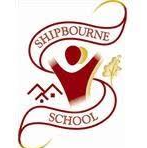Subject Planning
English
At Shipbourne School, we believe that language and literacy is fundamental for children to fulfil their potential. Through exposure to high-quality literature, effective teaching and learning and opportunities to write for a range of purposes, our children make sufficient progress and develop key skills which they transfer fluently across the whole school curriculum.
The English teaching we provide should allow all children to fulfil their potential whilst giving them the skills to understand and use language in all its aspects. We aim to engage all children in high-quality learning experiences in order to foster a passion for life-long reading, whilst providing the confidence to communicate effectively in both speaking and writing. Believing literacy has the power to enrich lives, we will strive to ensure every child develops the confidence and competence to embrace literature in its many forms.
Phonics and Reading
Throughout Key Stage 1, teachers use Fischer Family Trust’s systematic synthetic phonics programme – Success for All Phonics – to teach daily phonics, followed by The Jungle Club for the subsequent development of spelling. If a child is not successful in Year 1 Phonics screening, they will be supported to do so in Year 2. Alongside these programmes, shared reading using Fischer Family Trusts reading books takes place daily with parents given access to the associated e-books in line with the current phonics being taught. Reading for pleasure is also encouraged, with additional books that adults can read with their children also sent home. Children later move on to reading from a range of carefully banded books, predominantly from Engage Literacy, before moving on to ‘free reading’ where they may choose books from class book corners or from home.
Maths
‘A high-quality mathematics education provides a foundation for understanding the world, the ability to reason mathematically, an appreciation of the beauty and power of mathematics, and a sense of enjoyment and curiosity about the subject.’ (DfES 2014)
Teachers use the National Curriculum 2014, the Department for Education’s Mathematics Guidance for Key Stages 1 and 2, NCETM Teaching for Mastery, White Rose Maths and Assessment for Learning to plan and develop interesting and engaging lessons that ensure progression across the school. Through carefully adapted provision, we ensure that all pupils will:
- Become fluent in the fundamentals of mathematics, including varied and frequent practice with increasingly complex problems over time, so that pupils develop conceptual understanding and the ability to recall and apply knowledge rapidly and accurately.
- Reason mathematically by following a line of enquiry, conjecturing relationships and generalisations, and developing an argument, justification or proof using mathematical language.
- Solve problems by applying their mathematics to a variety of problems with increasing sophistication, including breaking down problems into a series of simpler steps and persevering in seeking solutions.











